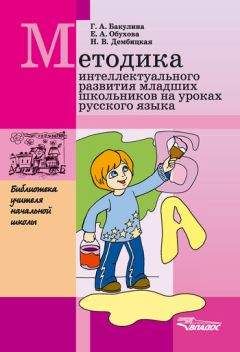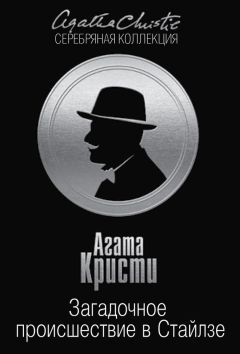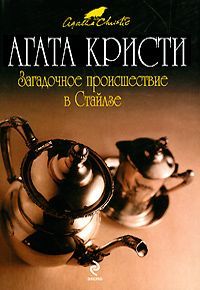Агата Кристи - Загадочное происшествие в Стайлзе [with w_cat]
[1593] She hesitated, and suddenly there swept across her face a strange expression, old as the hills, yet with something eternally young about it. So might some Egyptian sphinx have smiled.
[1594] She freed herself quietly from his arm, and spoke over her shoulder.
[1595] "Perhaps," she said; and then swiftly passed out of the little glade, leaving John standing there as though he had been turned to stone.
[1596] Rather ostentatiously, I stepped forward, crackling some dead branches with my feet as I did so. John turned. Luckily, he took it for granted that I had only just come upon the scene.
[1597] "Hullo, Hastings. Have you seen the little fellow safely back to his cottage? Quaint little chap! Is he any good, though, really?"
[1598] "He was considered one of the finest detectives of his day."
[1599] "Oh, well, I suppose there must be something in it, then. What a rotten world it is, though!"
[1600] "You find it so?" I asked.
[1601] "Good Lord, yes! There's this terrible business to start with. Scotland Yard men in and out of the house like a jack-in-the-box![44] Never know where they won't turn up next. Screaming headlines in every paper in the country-damn all journalists, I say! Do you know there was a whole crowd staring in at the lodge gates this morning. Sort of Madame Tussaud's[45] chamber of horrors business that can be seen for nothing. Pretty thick, isn't it?"
[1602] "Cheer up, John!" I said soothingly. "It can't last for ever."
[1603] "Can't it, though? It can last long enough for us never to be able to hold up our heads again."
[1604] "No, no, you're getting morbid on the subject."
[1605] "Enough to make a man morbid, to be stalked by beastly journalists and stared at by gaping moon-faced idiots, wherever he goes! But there's worse than that."
"What?"
[1606] John lowered his voice:
[1607] "Have you ever thought, Hastings-it's a nightmare to me- who did it? I can't help feeling sometimes it must have been an accident. Because-because-who could have done it? Now Inglethorp's out of the way, there's no one else; no one, I mean, except-one of us."
[1608] Yes, indeed, that was nightmare enough for any man! One of us? Yes, surely it must be so, unless____________________
[1609] A new idea suggested itself to my mind. Rapidly, I considered it. The light increased. Poirot's mysterious doings, his hints-they all fitted in. Fool that I was not to have thought of this possibility before, and what a relief for us all.
[1610] "No, John," I said, "it isn't one of us. How could it be?"
[1611] "I know, but, still, who else is there?"
[1612] "Can't you guess?"
"No."
[1613] I looked cautiously round, and lowered my voice.
[1614] "Dr. Bauerstein!" I whispered.
"Impossible!"
[1615] "Not at all."
[1616] "But what earthly interest could he have in my mother's death?"
[1617] "That I don't see," I confessed, "but I'll tell you this: Poirot thinks so."
[1618] "Poirot? Does he? How do you know?"
[1619] I told him of Poirot's intense excitement on hearing that Dr. Bauerstein had been at Styles on the fatal night, and added:
[1620] "He said twice: 'That alters everything.' And I've been thinking. You know Inglethorp said he had put down the coffee in the hall? Well, it was just then that Bauerstein arrived. Isn't it possible that, as Inglethorp brought him through the hall, the doctor dropped something into the coffee in passing?"
[1621] "H'm," said John. "It would have been very risky."
[1622] "Yes, but it was possible."
[1623] "And then, how could he know it was her coffee? No, old fellow, I don't think that will wash."
[1624] But I had remembered something else.
[1625] "You're quite right. That wasn't how it was done. Listen." And I then told him of the coco sample which Poirot had taken to be analysed.
[1626] John interrupted just as I had done.
"But, look here, Bauerstein had had it analysed already?"
[1627] "Yes, yes, that's the point. I didn't see it either until now. Don't you understand? Bauerstein had it analysed-that's just it! If Bauerstein's the murderer, nothing could be simpler than for him to substitute some ordinary coco for his sample, and send that to be tested. And of course they would find no strychnine! But no one would dream of suspecting Bauerstein, or think of taking another sample-except Poirot," I added, with belated recognition.
[1628] "Yes, but what about the bitter taste that coco won't disguise?"
[1629] "Well, we've only his word for that. And there are other possibilities. He's admittedly one of the world's greatest toxicologists--"
[1630] "One of the world's greatest what? Say it again."
[1631] "He knows more about poisons than almost anybody," I explained. "Well, my idea is, that perhaps he's found some way of making strychnine tasteless. Or it may not have been strychnine at all, but some obscure drug no one has ever heard of, which produces much the same symptoms."
[1632] "H'm, yes, that might be," said John. "But look here, how could he have got at the coco? That wasn't downstairs?"
[1633] "No, it wasn't," I admitted reluctantly.
[1634] And then, suddenly, a dreadful possibility flashed through my mind. I hoped and prayed it would not occur to John also. I glanced sideways at him. He was frowning perplexedly, and I drew a deep breath of relief, for the terrible thought that had flashed across my mind was this: that Dr. Bauerstein might have had an accomplice.
[1635] Yet surely it could not be! Surely no woman as beautiful as Mary Cavendish could be a murderess. Yet beautiful women had been known to poison.
[1636] And suddenly I remembered that first conversation at tea on the day of my arrival, and the gleam in her eyes as she had said that poison was a woman's weapon. How agitated she had been on that fatal Tuesday evening! Had Mrs. Inglethorp discovered something between her and Bauerstein, and threatened to tell her husband? Was it to stop that denunciation that the crime had been committed?
[1637] Then I remembered that enigmatical conversation between Poirot and Evelyn Howard. Was this what they had meant? Was this the monstrous possibility that Evelyn had tried not to believe?
[1638] Yes, it all fitted in.
[1639] No wonder Miss Howard had suggested "hushing it up." Now I understood that unfinished sentence of hers: "Emily herself--" And in my heart I agreed with her. Would not Mrs. Inglethorp have preferred to go unavenged rather than have such terrible dishonour fall upon the name of Cavendish.
[1640] "There's another thing," said John suddenly, and the unexpected sound of his voice made me start guiltily. "Something which makes me doubt if what you say can be true."
[1641] "What's that?" I asked, thankful that he had gone away from the subject of how the poison could have been introduced into the coco.
[1642] "Why, the fact that Bauerstein demanded a post-mortem. He needn't have done so. Little Wilkins would have been quite content to let it go at heart disease."
[1643] "Yes," I said doubtfully. "But we don't know. Perhaps he thought it safer in the long run. Some one might have talked afterwards. Then the Home Office might have ordered exhumation. The whole thing would have come out, then, and he would have been in an awkward position, for no one would have believed that a man of his reputation could have been deceived into calling it heart disease."
[1644] "Yes, that's possible," admitted John. "Still," he added, "I'm blest if I can see what his motive could have been."
[1645] I trembled.
[1646] "Look here," I said, "I may be altogether wrong. And, remember, all this is in confidence."
[1647] "Oh, of course-that goes without saying."
[1648] We had walked, as we talked, and now we passed through the little gate into the garden. Voices rose near at hand, for tea was spread out under the sycamore-tree, as it had been on the day of my arrival.
[1649] Cynthia was back from the hospital, and I placed my chair beside her, and told her of Poirot's wish to visit the dispensary.
[1650] "Of course! I'd love him to see it. He'd better come to tea there one day. I must fix it up with him. He's such a dear little man! But he *IS funny. He made me take the brooch out of my tie the other day, and put it in again, because he said it wasn't straight."
I laughed.
[1651] "It's quite a mania with him."
"Yes, isn't it?"
[1652] We were silent for a minute or two, and then, glancing in the direction of Mary Cavendish, and dropping her voice, Cynthia said:
[1653] "Mr. Hastings."
"Yes?"
"After tea, I want to talk to you."
[1654] Her glance at Mary had set me thinking. I fancied that between these two there existed very little sympathy. For the first time, it occurred to me to wonder about the girl's future. Mrs. Inglethorp had made no provisions of any kind for her, but I imagined that John and Mary would probably insist on her making her home with them-at any rate until the end of the war. John, I knew, was very fond of her, and would be sorry to let her go.
[1655] John, who had gone into the house, now reappeared. His good-natured face wore an unaccustomed frown of anger.
[1656] "Confound those detectives! I can't think what they're after! They've been in every room in the house-turning things inside out, and upside down. It really is too bad! I suppose they took advantage of our all being out. I shall go for that fellow Japp, when I next see him!"
[1657] "Lot of Paul Prys[46]," grunted Miss Howard.
[1658] Lawrence opined that they had to make a show of doing something.
Mary Cavendish said nothing.
[1659] After tea, I invited Cynthia to come for a walk, and we sauntered off into the woods together.
[1660] "Well?" I inquired, as soon as we were protected from prying eyes by the leafy screen.
[1661] With a sigh, Cynthia flung herself down, and tossed off her hat. The sunlight, piercing through the branches, turned the auburn of her hair to quivering gold.
[1662] "Mr. Hastings-you are always so kind, and you know such a lot."
[1663] It struck me at this moment that Cynthia was really a very charming girl! Much more charming than Mary, who never said things of that kind.
[1664] "Well?" I asked benignantly, as she hesitated.
[1665] "I want to ask your advice. What shall I do?"
"Do?"
[1666] "Yes. You see, Aunt Emily always told me I should be provided for. I suppose she forgot, or didn't think she was likely to die-anyway, I am *NOT provided for! And I don't know what to do. Do you think I ought to go away from here at once?"
[1667] "Good heavens, no! They don't want to part with you, I'm sure."
[1668] Cynthia hesitated a moment, plucking up the grass with her tiny hands. Then she said: "Mrs. Cavendish does. She hates me."
[1669] "Hates you?" I cried, astonished.
[1670] Cynthia nodded.
"Yes. I don't know why, but she can't bear me; and *HE can't, either."
[1671] "There I know you're wrong," I said warmly. "On the contrary, John is very fond of you."
[1672] "Oh, yes-*JOHN. I meant Lawrence. Not, of course, that I care whether Lawrence hates me or not. Still, it's rather horrid when no one loves you, isn't it?"
[1673] "But they do, Cynthia dear," I said earnestly. "I'm sure you are mistaken. Look, there is John-and Miss Howard-"
[1674] Cynthia nodded rather gloomily. "Yes, John likes me, I think, and of course Evie, for all her gruff ways, wouldn't be unkind to a fly. But Lawrence never speaks to me if he can help it, and Mary can hardly bring herself to be civil to me. She wants Evie to stay on, is begging her to, but she doesn't want me, and-and-I don't know what to do." Suddenly the poor child burst out crying.
[1675] I don't know what possessed me. Her beauty, perhaps, as she sat there, with the sunlight glinting down on her head; perhaps the sense of relief at encountering someone who so obviously could have no connection with the tragedy; perhaps honest pity for her youth and loneliness. Anyway, I leant forward, and taking her little hand, I said awkwardly:
[1676] "Marry me, Cynthia."
[1677] Unwittingly, I had hit upon a sovereign remedy for her tears. She sat up at once, drew her hand away, and said, with some asperity:
[1678] "Don't be silly!"
[1679] I was a little annoyed.

![Агата Кристи - Загадочное происшествие в Стайлзе [with w_cat]](/uploads/posts/books/no-image.jpg)


